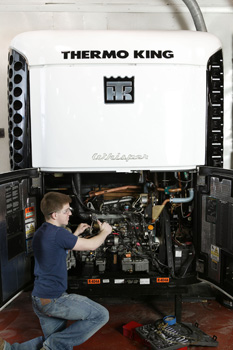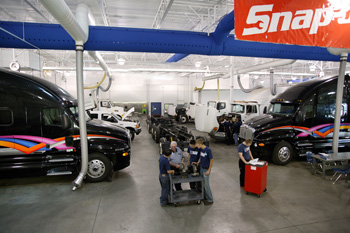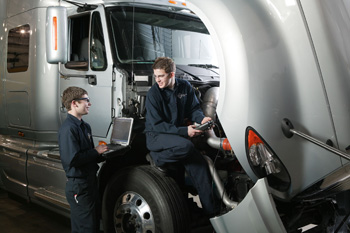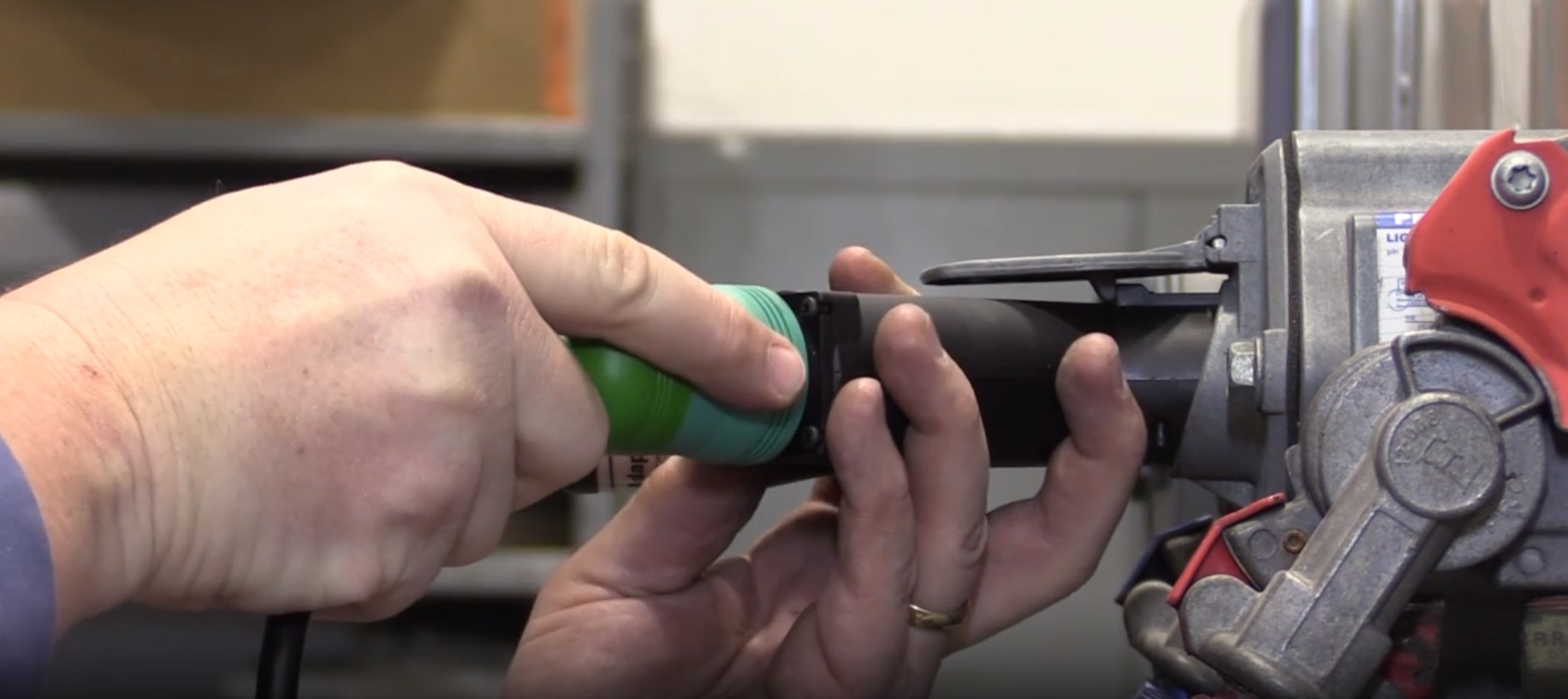 By: Jeffrey Worster, Technical team leader and diesel instructor
By: Jeffrey Worster, Technical team leader and diesel instructor
Universal Technical Institute, Norwood, MA, campus
Diesels like it hot. Although a heavy-duty diesel engine can power a truck, locomotive or even an oil rig, it still needs some TLC in preparation for cold temperatures. Whether you are a fleet manager or driver, following some basic winterizing guidelines and addressing any issues that might impact performance, reliability and engine starts now, will help keep your heavy-duty diesel systems running better later, during the frigid winter months.
Tip One: The Fuel
The biggest and most commonly overlooked issue with starting and running diesels in cold weather is the fuel itself. Diesel fuels contain paraffin (wax) which causes these blends to gel as they cool, leading to a roughness in the vehicle’s operation and, in some cases, engine failure.
Number 1 (1D) and Number 2 (2D) are the primary fuels for most diesel applications. During warmer months, 2D, considered a summer-grade fuel, is commonly used because of its higher British thermal unit (BTU) content, or heat value. As the weather cools, distributors change the mixture of the fuel to a “winter blend” of 2D and 1D.
As the seasons change, it is a good idea to check the fuel grade, as well as the cetane rating on the pump. The higher the cetane number, the easier your vehicle will start in cold weather.
Readily available cold-weather and anti-gel additives are an important part of your winterization. Add them to the tank whenever you fill up to ensure the smooth flow of fuel and better vehicle performance during the cold season. Check your owner’s manual for specific additive guidelines and always follow mixing procedures to the letter or risk fuel system damage. 
Tip Two: Fuel Filter and Water Separator
Water and contaminants that occur in the fuel have a direct impact on the service life and performance of heavy-duty diesels. During the winter, condensation forms on the inside of a warm fuel tank as it cools. Filling the fuel tank at the end of the day reduces how much condensation will collect.
Water in the fuel system will reduce engine performance and ruin components, such as fuel pumps and injectors. This can mean costly downtime and expensive repairs. Regular maintenance can significantly reduce the occurrence of these problems when winter comes.
Temperature changes and higher humidity levels, which differ from region to region, can increase the occurrence of water contamination. There is no way to completely prevent the presence of water in the tank, but many diesel fuel systems feature water separators that collect and store water droplets away from the fuel. If yours does not have this feature, one can be installed. It is important to check the water separator daily and drain any buildup immediately to avoid freezing and poor engine performance.
Tip Three: Cooling Systems
Don’t let the name fool you. Cooling system maintenance is a necessary component of winterizing. In excessive temperatures, your high-power diesel engine, which is already demanding on coolants, can have problems with adequate engine cooling.
A regular preventive maintenance program will uncover problems within the cooling system and cab heater, as well as radiator leaks, plugged hoses and cracked belts. If left unchecked, these issues may worsen in frosty temperatures and eventually lead to the failure of the cooling system components and engine damage will occur. 
In addition, diesel engines have a large liquid capacity. Therefore, checking the additive levels to determine if the coolant needs to be changed or adjusted should become part of your regular maintenance plan. There are a variety of coolant testing tools that check additive levels and the cooling system freeze point. The owner’s manual will list compatible coolants for your engine.
Tip Four: Air Dryer
The air dryer is designed to collect and remove air system contaminants in solid, liquid and vapor forms before they enter the brake system and cause the brakes to freeze. Installed between the compressor and wet tank, the air dryer removes moisture and contaminants from the compressed air and prevents water from entering into the air system.
In colder climates, water can freeze in the valves and cause serious problems with the operation of your air-brake system. To ensure proper brake function and keep your vehicle running smoothly in freezing conditions, air dryer maintenance is imperative. Before winter is also the perfect time to have your air dryer filter changed.
Tip Five: Engine
Diesel engines are much harder to start in cold weather than gasoline-powered vehicles, because they require higher cylinder temperatures. Review your manual to find out what heating devices, if any, were installed on your vehicle.
If you live and/or travel in a cold climate, you may want to consider installing some additional heating options, including an electric-powered block heater to keep the engine warm overnight.
Check that the block heater cord will accommodate a three-prong plug and ensure it is securely held in place. Also, check the operation of intake pre-heaters and glow plugs (if equipped) to ensure they are functioning properly.
Tip Six: Battery
In winter, heavy-duty diesels, just like gasoline-powered engines, require strong batteries that hold a good charge with enough cranking amps to start the engine. Freezing conditions drain a battery faster.
The perfect time to check on the age of your battery is just before cold weather arrives. Replace the battery if it is close to the end of a typical 48- to 72-month life cycle. Otherwise, make sure the battery is securely mounted and
connections are tight and clean.
Tip Seven: An Ounce of Prevention
You should always follow the maintenance schedule of inspections and service outlined in the owner’s manual. Many of the cold weather tips are included in a regular maintenance routine. If you live in a warm climate, don’t forget that many of these tips also apply to your heavy-duty diesel.
Take into account where your vehicle may be headed during the winter season.
Tip Eight: Take it to the Pros
If you are a do-it-yourselfer, know your limits! While tackling some projects is often a cost effective solution, individuals can quickly get in over their head and end up compromising safety, causing serious damage to the vehicle and spending considerably more money in the end. When in doubt, leave it to the professionals.


